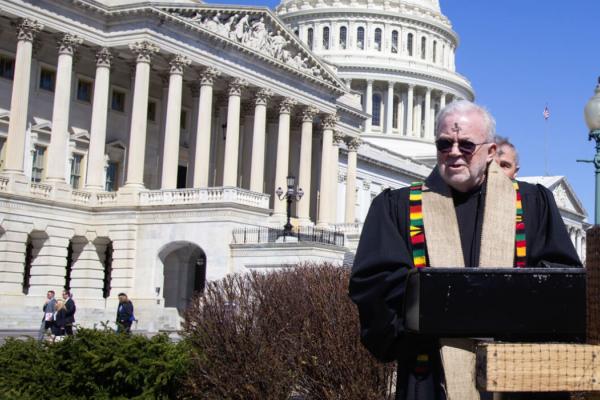WHEN I RECENTLY spoke at Calvin College in Grand Rapids, Mich., on the subject of my book America’s Original Sin, the moderator introduced me with something that isn’t in my official bio. “Our speaker today has been arrested 22 times.”
It’s up to 23 times now, after I was arrested in December in the Hart Senate Office Building for reading biblical passages about poverty to protest the GOP tax plan, which disproportionately favors the rich.
In Shane Claiborne’s piece in this issue, he provides an overview of civil disobedience—both the biblical basis for disobeying unjust laws and how people doing so, often at great risk, have changed the course of history again and again. I want to share a few of my own reflections on civil disobedience.
In late 1983, on the heels of the Reagan administration’s invasion of Grenada, church leaders in Nicaragua called Sojourners and pleaded with us to help stop the invasion of their country, rightly fearing that the U.S. would target Nicaragua next. We asked ourselves, What can we do?
After much prayer and discernment, and in collaboration with many allies in the Christian peace movement, we launched “The Pledge of Resistance,” wherein Christians across the United States “pledged” to fill the offices of their members of Congress in massive civil disobedience if Nicaragua were invaded. Eighty thousand people eventually signed the pledge. Most of the signers were prepared to be arrested and go to jail if necessary.
Our hope in creating this pledge was to increase the domestic cost of a U.S. invasion—with a credible promise to mobilize tens of thousands to engage in principled law-breaking all over America—hoping that might make decision-makers reconsider. It worked.
Read the Full Article

